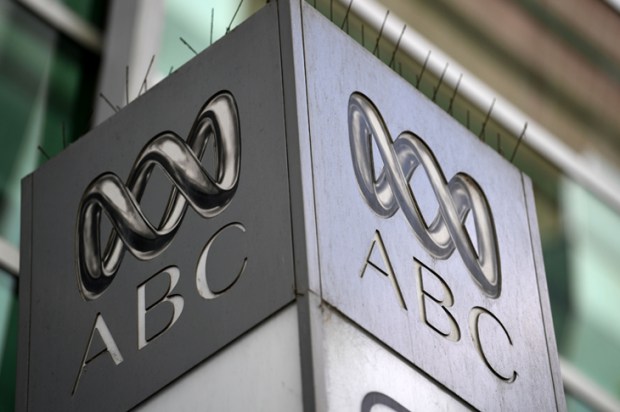In 2012, during the dying days of the Gillard Labor Government, two pieces of media legislation sailed seamlessly through the Federal Parliament. Both had timeless application and both directly, or indirectly, affected the future of the ABC.
The first, which drew no response from the Canberra Press Gallery, placed a permanent ban on any additional players entering Australia’s commercial free to air television industry. The second gifted the running of the government funded overseas television broadcasting service – Australia Network – to the ABC in perpetuity.
These legislative moves came in the wake of a bitter controversy between the Government and media organisations over attempts by Gillard and her Communications Minister, Senator Stephen Conroy, to ‘reform’ the industry. Not surprisingly this was seen as a censorship wolf in sheep’s clothing. And when it all became too hard politically, Gillard pulled the pin.
Parliament’s ban on a fourth commercial television network came into play recently when legislation to allow the ABC’s fellow national broadcaster – SBS – to boost its revenue by increasing prime time advertising hit the wall in the Senate. The free to air TV lobby group, which could not believe its luck when the fourth network ban became law back in 2012, argued vociferously that allowing SBS to do this would be in direct breach of the law because it would effectively be creating another commercial network.
While the Abbott Government is anxious to wave the competition flag with policies including free trade agreements, such as the recent deal reached with China, the TV networks are confident that none of the political parties, big or small, have any appetite for change to this anti-competitive broadcasting law. And, sadly, I have no doubt they are right.
While this law is firmly entrenched in the system, the ABC lost the Australia Network deal when Abbott scrapped the Government’s $20 million a year contract for the service last year.
The contract may be gone but the tactics used by the ABC to convince Gillard that only it had the integrity to run this international service should not be forgotten, particularly in light of the Q&A cock a snoot at the Abbott Government over extremist, and former terrorist suspect, Zaky Mallah.
In a public response to the political fallout from this issue, ABC Managing Director Mark Scott stressed that the organisation was an independent public broadcaster. In fact, it was its independence from government that shaped the ABC as a public broadcaster, not a state broadcaster, he said; going on to point the finger at North Korea, Russia, China and Vietnam as examples of the alternative.
This is all very well, but those who followed Scott’s campaign to secure the lucrative international TV deal during the Labor Government years could be left justifibly scratching their heads at these comments.
This is because a key requirement for gaining this broadcasting contract involved meeting the Federal Government’s diplomatic objectives in the region – effectively to provide a broadcasting platform for Government propaganda. This was no problem for the ‘independent’ ABC.
Neither it seems were specific requirements laid down by then Foreign Affairs Minister, Kevin Rudd, that Australia Network would supply his department with regular, detailed breakdowns of how each news, current affairs and business program was produced and how this supported the Labor Government’s regional public diplomacy objectives. Rudd also insisted that program schedules should be vetted to ensure that they represented an ‘intelligent mix of the best of Australian content.’
Scott’s campaign, echoed by the Fairfax media, was squarely directed at the partly Murdoch-owned SKY News which, for reasons best known to itself, was also contesting the tender for the international TV broadcasting service. Scott argued that SKY was unsuited for this role because of its commercial base which undermined any claim to editorial independence.
Australia Network, like the ABC, was ‘clearly independent of Government’, independent in statute, in policy and in practice, he stressed. But apparently not independent enough to prevent it from dancing to the Government’s tune.
In other words, being a mouthpiece for ‘soft’ government diplomacy did not impinge on the ABC’s integrity or editorial independence. Far from it – it was the only outfit appropriately equipped because of its resources to do the job properly.
In April 2009, writing in the Sydney Morning Herald (where he used to be managing editor) Scott defended the ABC’s continued administration of Australia Network arguing that the power of broadcasting was a new tool in the diplomatic kitbag which could not be neglected.
He singled out Insiders and Q&A as examples of a robust democratic broadcasting model where views and government policies were debated and analysed and disseminated through the region.
By the time the ABC was permanently gifted the contract to run Australia Network, Gillard had withdrawn oversight of the tender process from Rudd and given it to Conroy. And it has never been made clear what the ground rules for its operation were post Rudd.
Nevertheless, if the ABC was still managing this government international TV broadcasting service, can we assume that it would have included the Zaky MallahQ&A program on its regional distribution platform?
Got something to add? Join the discussion and comment below.
Get 10 issues for just $10
Subscribe to The Spectator Australia today for the next 10 magazine issues, plus full online access, for just $10.
Malcolm Colless is a freelance writer and journalist.
You might disagree with half of it, but you’ll enjoy reading all of it. Try your first month for free, then just $2 a week for the remainder of your first year.













Comments
Don't miss out
Join the conversation with other Spectator Australia readers. Subscribe to leave a comment.
SUBSCRIBEAlready a subscriber? Log in